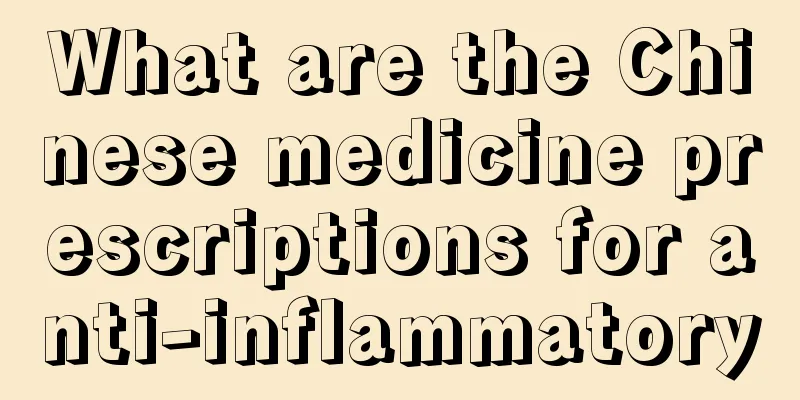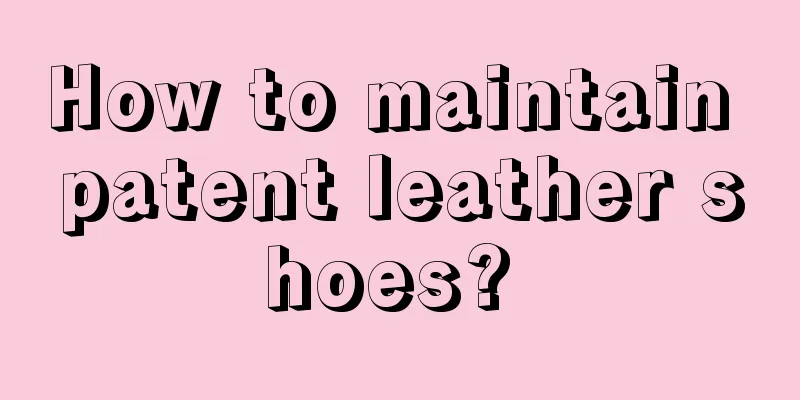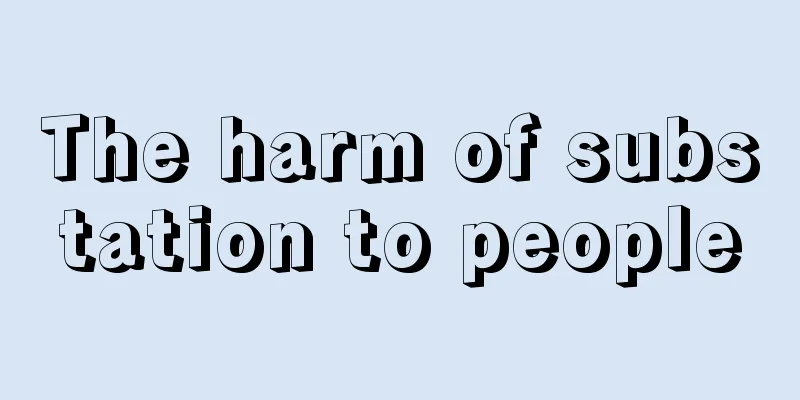What are the Chinese medicine prescriptions for anti-inflammatory

|
When treating some inflammatory diseases, the first thing people think of should be anti-inflammatory drugs. However, most of these anti-inflammatory drugs are Western medicines. I believe that many people do not know how Chinese medicine uses anti-inflammatory treatment when facing these diseases, and they are completely ignorant of the anti-inflammatory prescriptions of Chinese medicine. So, what are the Chinese medicine prescriptions for anti-inflammatory effects? First, what are the Chinese medicine prescriptions for anti-inflammatory? Dwarf Artemisia absinthium [Other names] Fish gall grass, wormwood, straight false wormwood (Selected Yunnan Chinese Herbal Medicines), Golden Gentian (Sichuan Chinese Herbal Medicine Newsletter). [Source] The whole herb of Artemisia absinthium of the Asteraceae family. Harvest in autumn. [Original form] Artemisia absinthium: annual herb, about 60 cm tall, densely covered with soft hairs. The taproot is long columnar, yellowish brown, with fine fibrous roots on it. The stem is erect, cylindrical, densely pubescent, and multi-branched at the top. The simple leaves are alternate, oblong, 4-6 cm long, 2.5-3 cm wide, deeply pinnate, with lobes 3-4 mm wide, and densely covered with soft hairs on both sides. The capitula is about 6 mm in diameter and arranged in a panicle. The flowers are yellow. The outer flowers are female and filamentous, while the inner flowers are bisexual and tubular. The achenes are very small and have a row of pappus. Flowering period is summer. [Habitat distribution] Grown in wasteland and roadsides. Distributed in Yunnan and Sichuan. [Chemical composition] The whole plant contains alkaloids, saponins, phenolic substances, acidic substances and trace amounts of volatile oils. [Pharmacological action] ①Expectorant effect Oral decoction for mice [Functions and indications] Anti-inflammatory, heat-clearing, and detoxification. Treat otitis media, wind-fire eye, wind-fire toothache, stomatitis, and pharyngitis. Premature ejaculation, impotence, irregular menstruation, more functions and indications >>> Usage and Dosage: Oral administration: decoction, 2 to 3 coins; or mash into juice. For external use: mash the juice and drop it into ears or eyes, or grind it into powder and sprinkle it on eyes. [Additional prescription] ① Treat otitis media: Juice of fresh Artemisia absinthium branches and leaves, add herring bile and drip into the ear. (The following properties and flavors are from "Selected Chinese Herbal Medicines in Yunnan") ② Treat bleeding from external injuries: 3 qian of dwarf wormwood, 2 qian of cuttlefish bone, and 2 qian of blood flying. Grind them into powder and use externally. (Common Folk Herbs in Kunming) [Clinical Application] For the treatment of chronic bronchitis: remove the old stems and roots of Gentiana scabra, grind into powder, make into pills with water, and coat with talcum powder. Take 1 gram each time, 3 times a day, after meals. 565 cases were treated, 109 cases were under near control (19.3%), 187 cases were significantly effective (33.1%), 207 cases were improved (36.6%), and 62 cases were ineffective (10.9%). Side effects: The incidence rate was 24.4%. Symptoms include abdominal distension, nausea, vomiting, diarrhea, dry mouth, dizziness, etc. It usually occurs within 1 to 2 days after taking the medicine. It is mild and may disappear on its own and does not interfere with continued medication. This medicine tastes very bitter and should be taken after meals. After taking the medicine, patients generally reported an increase in appetite, improved sleep and spirits, and obvious anti-inflammatory, expectorant, antiasthmatic and antitussive effects. Experiments have shown that the decoction of golden gentian has antibacterial effects on seven types of bacteria, including group A streptococci, pneumonia cocci, hemolytic streptococci, pneumonia bacillus, Staphylococcus aureus, Staphylococcus aureus, and catarrhalis. Second, Cyathocline purpurea [Pinyin name] Bēi Jú [Alias] Artemisia purpurea, Artemisia purpurea branch [Source] Cyathocline purpurea (Buch.-Ham.) O. Ktunze, Asteraceae, the whole plant is used as medicine. 【Habitat distribution】Guangxi, Guangdong, Guizhou and Yunnan. 【Nature and flavor】Bitter, cool. 【Functions and indications】 Clears away heat and detoxifies, reduces inflammation and stops bleeding, removes dampness and promotes diuresis, and kills insects. It is mainly used to treat acute gastroenteritis, heatstroke, cystitis, urethritis, pharyngitis, stomatitis, hematemesis, and epistaxis. Premature ejaculation, impotence of the minor genitals, irregular menstruation, more functions and indications >>> [Usage and Dosage] 0.5-1 liang; For external use, apply an appropriate amount, mash the fresh product for application, or grind the dry product into powder for application. What are the Chinese medicine prescriptions for anti-inflammatory treatment? Bashanhu [Pinyin name] Bā Shān Hǔ [Alias] Golden Button Root (Luchuan Materia Medica), Thin Button Root, Button Head (Nanning Pharmacopoeia), Purple Flower Eggplant Root (Fujian Chinese Herbal Medicine). [Source] It is the root of Solanum purpurogenum, a plant of the Solanaceae family. Available all year round. [Original morphology] The plant morphology is detailed in the entry for "天茄子". [Properties and flavors] Bitter, neutral. ① "Essentials of Raw Medicinal Herbs": "bitter." ② "Records of Medicinal Herbs in Lingnan": "bitter, cold." ③ "Nanning City Pharmacopoeia": "bitter, neutral." ④ Guangzhou Air Force "Handbook of Commonly Used Chinese Herbal Medicines": "light, cool, slightly toxic." [Functions and indications] Clears heat and dampness, removes blood stasis and reduces swelling. Treat rheumatic pain, abdominal pain due to qi sha, headache, toothache, pharyngitis, tonsillitis, malnutrition, traumatic injury, and scrofula. ① "Essentials of Raw Herbal Medicines": "If the patient is dying from falls, boil it in wine and drink it." ② "Nanning City Pharmacopoeia": "It clears away heat, quenches thirst, and relieves cough. It can treat abdominal pain caused by shaqi, five malnutrition, fever in children, and snake bites." ③ Guangzhou Air Force "Handbook of Commonly Used Chinese Herbal Medicines": "It can disperse blood stasis and reduce swelling, reduce inflammation and relieve pain. It can treat pharyngitis, tonsillitis, lymphadenitis, and stomachache. |
<<: Will anti-inflammatory drugs cause hematuria?
>>: What vegetables can reduce inflammation
Recommend
Traditional Chinese medicine remedies for liver metastasis of lung cancer
Chinese herbal remedies for lung cancer liver met...
Can I eat while doing a urine routine test?
Urinalysis is a very common test. It can detect m...
What nutritional supplements should be given for fractures
Many people are afraid of fractures. If fractures...
How long can you live with gallbladder cancer
Do you know how long you can live with gallbladde...
Mantle cell lymphoma stage IV
Many people in the 28 counties and districts are ...
There is a lump of flesh under the retracted chin
Everyone has a love for beauty. So in life many p...
Gout diet menu
In fact, the human body also needs to maintain an...
How can women prevent the occurrence of lung cancer? 3 methods can effectively prevent lung cancer
In life, there are not many female friends who sm...
Will a pituitary tumor shorten life?
When it comes to cancer, everyone is afraid of it...
I feel like coughing when I talk
Coughing is a common occurrence and can be caused...
How to remove oil stains from clothes
Many friends spend a lot of time on socializing, ...
How to remove tooth stains?
Every time I see Korean Oppa, I can't help bu...
What kind of lung cancer can be treated with CyberKnife?
CyberKnife is a new stereotactic radiotherapy met...
What causes liver cancer? The 6 most likely causes of liver cancer
Liver cancer is a malignant tumor of the liver, w...
Can red wine and pumpkin be eaten together?
Pumpkin is a very common vegetable. Eating pumpki...









